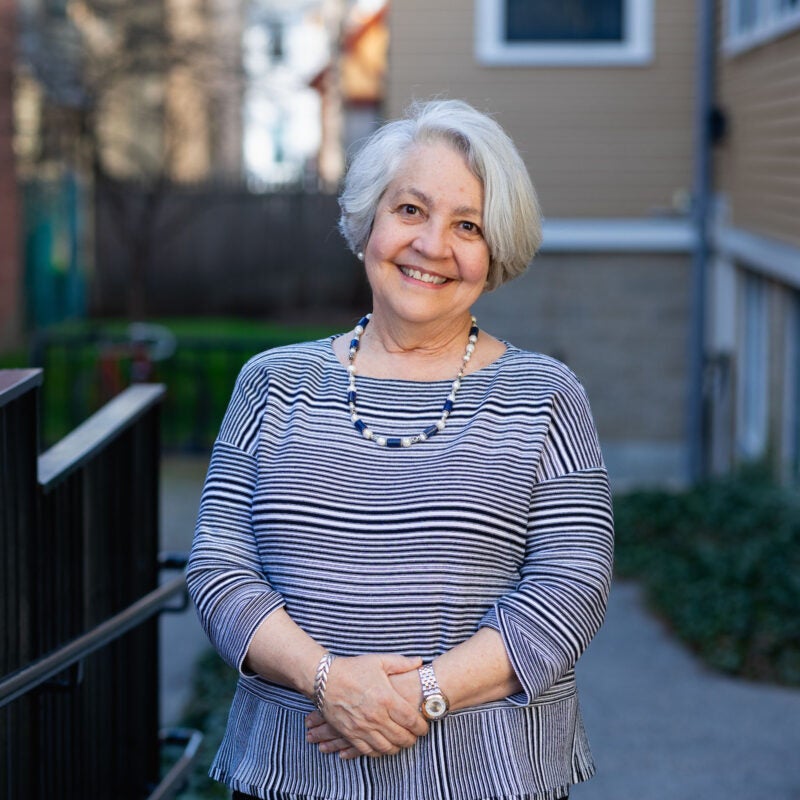
‘She raised us all as future legal aid lawyers’
April 23, 2024
Susana Arteta, administrative director of the Harvard Legal Aid Bureau, retires after 22 years of service as an HLAB mentor, confidant, historian, and beloved colleague.
Clinic Stories News, stories, and updates from the world of clinical and pro bono work at HLS
Contact Office of Clinical and Pro Bono Programs
Website:
hls.harvard.edu/clinics
Email:
clinical@law.harvard.edu
April 23, 2024
Susana Arteta, administrative director of the Harvard Legal Aid Bureau, retires after 22 years of service as an HLAB mentor, confidant, historian, and beloved colleague.